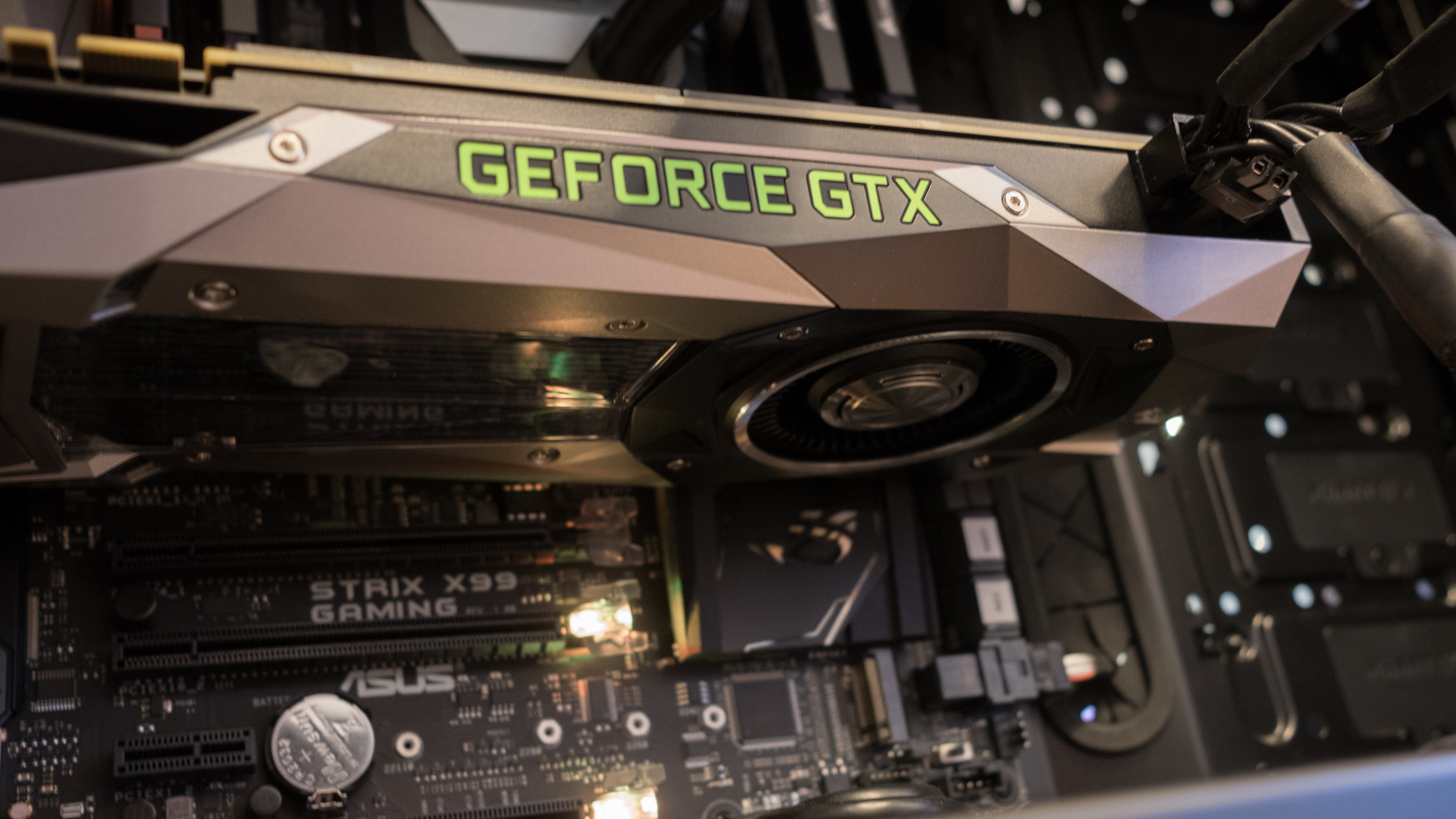Nvidia’s graphics card sales surge, but are cryptocurrency miners the major buyers?
Cryptocurrency-related profits are up, but firm is stressing support for gamers

Sign up for breaking news, reviews, opinion, top tech deals, and more.
You are now subscribed
Your newsletter sign-up was successful
Nvidia has just revealed its latest financial figures for Q4 (financial year 2018) which set a new record for revenue, powered by strong growth in the sales of graphics cards.
Headline revenue reached $2.91 billion (around £2.1 billion, AU$3.75 billion), a 34% increase compared to the same quarter last year. The firm’s GPU business represented the lion’s share of that money, raking in $2.46 billion (around £1.75 billion, AU$3.15 billion), which was up 33% year-on-year.
The majority of that GPU revenue was driven by GeForce graphics cards (the gaming division), which took $1.74 billion (around £1.25 billion, AU$2.25 billion), representing impressive growth levels.
Mining for details
But who is buying those GeForce cards? And how are cryptocurrency miners fitting into this picture of surging sales?
As Polygon reports, Nvidia’s chief financial officer, Colette Kress, admitted that “strong demand in the cryptocurrency market exceeded our expectations”, on the one hand, and that GPUs sold to miners represented a “higher percentage of revenue” compared to the last quarter. Sales were up, then, and by a decent chunk by the sound of things.
However, Kress wasn’t any more specific than this, saying that the exact increase in sales to cryptocurrency miners was “difficult to quantify”.
In its earnings call, Nvidia was also keen to make the point that the surge in GeForce sales was down to all manner of factors, including “new games, holiday-season demand, iCafe upgrades, esports and cryptocurrency mining.”
Sign up for breaking news, reviews, opinion, top tech deals, and more.
Notice what was mentioned last there: principally gaming, esports, and, oh yes, mining as well.
On top of that, CFO Kress clearly stated that: “Our main focus remains on our core market, as cryptocurrency will likely remain volatile.” And she further predicted that next quarter, cryptocurrency revenue is expected to flat-line.
Bulk buy backlash
To be fair to Nvidia, it is doubtless difficult to quantify exactly where GeForce GPUs are ending up after they’ve left the shelves. And the company is making moves to try to defend gamers against the current GPU shortage, and it’s at least trying to prevent miners from bulk buying graphics cards with its advice to retailers of late.
But, we feel that there is something of a damage limitation effort going on here, in terms of the potential embarrassment caused by the fact that gamers are struggling to actually find reasonably priced graphics cards these days.
Nvidia’s CEO Jensen Huang commented: “We’re working really hard to get GPUs out into the marketplace for the gamers. And we’re doing everything we can to advise e-tailers and system builders to serve the gamers.”
As we already mentioned, we’ve seen evidence of that action at the end of January, with several retailers attempting to move in favor of gamers (Micro Center in the US, Memory Express in Canada, and Newegg to a certain extent with some bundle deals).
Maybe we’ll see further moves from other retail outlets trying to put the GPU ball back in the gamer’s court. But for now, it’s a case of holding out and hoping things get better with supply (incidentally, Huang wouldn’t be drawn when it came to questions about exactly what the production and supply problems were, and whether video RAM was the major bottleneck).
In the big picture, though, profits are well up, and things are looking pretty rosy for Nvidia, with investors – and arguably retailers – unlikely to care whether those piles of GeForce cards are being sold to gamers, miners, or indeed small furry creatures from Alpha Centauri.
- These are the best graphics cards of 2018
Darren is a freelancer writing news and features for TechRadar (and occasionally T3) across a broad range of computing topics including CPUs, GPUs, various other hardware, VPNs, antivirus and more. He has written about tech for the best part of three decades, and writes books in his spare time (his debut novel - 'I Know What You Did Last Supper' - was published by Hachette UK in 2013).